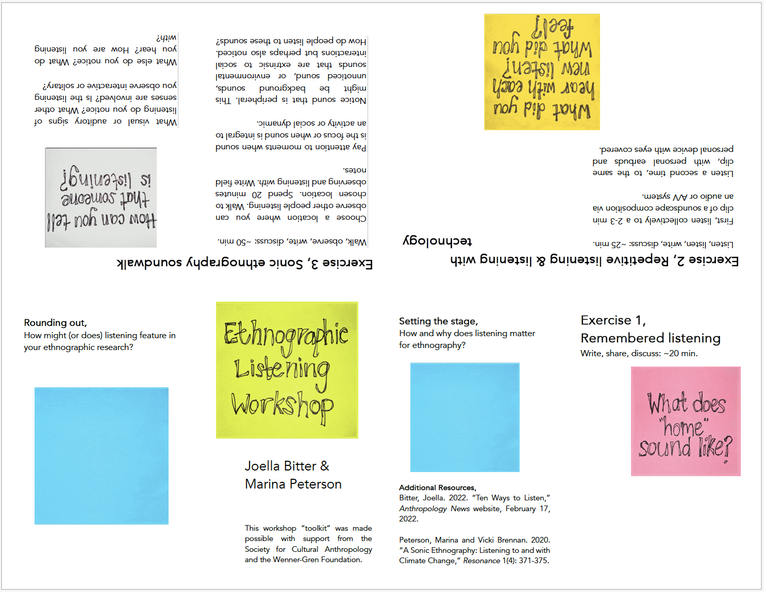
Listening in Toronto
Our Ethnographic Listening Workshop was held at 10 a.m. on November 16, 2023, in Toronto as part of the 2023 American Anthropological Association (AAA)/Canadian Anthropology Society (CASCA) Meetings. We set up a long table in “Transitions/Transmissions: A Sound Installation,” organized by the Music and Sound Interest Group. At each seat we placed a blank notebook, a pen, and a copy of the listening prompts for the workshop.
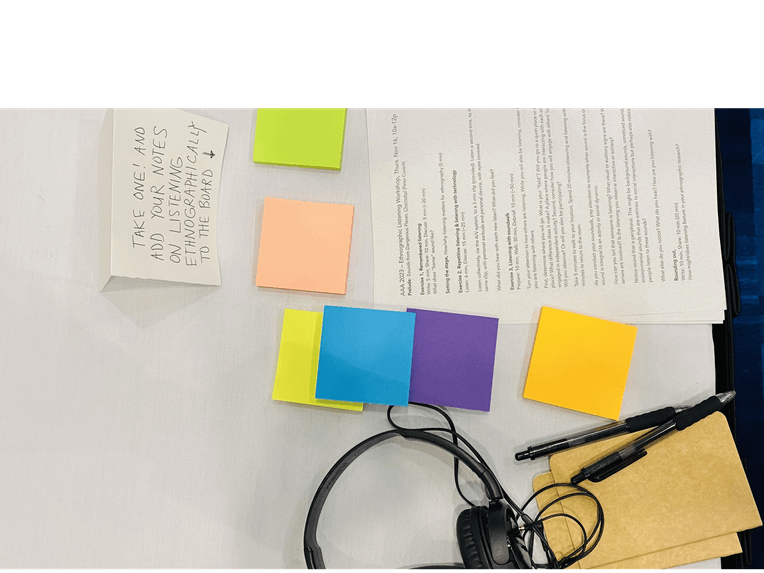
Participants responded to a call circulated via email lists and social media, framing the workshop with the following:
Listening is a practice that people do as a way of being in and knowing the world—it is something in which we are all expert, even if not always acknowledged. The goal of the workshop is to explore listening as an ethnographic mode of attention which is neither separable from other senses nor neutral in its orientations. The ethnographic process is layered—there are relationships, activities, notes we take, scribblings, recordings, feelings, sensory experiences, extra-sensory experiences, and with time, there are also memories, things-forgotten, things-imagined, and things-revised. And then there’s the writing, analysis, story-telling, making arguments, and perhaps even the ever-elusive research conclusions. We ask, what role can listening play in ethnographic research and writing? In this workshop, we will consider how listening with can support an understanding of sound as socially meaningful. We will experiment with several different modes of listening and consider what emerges through sensory attunements.
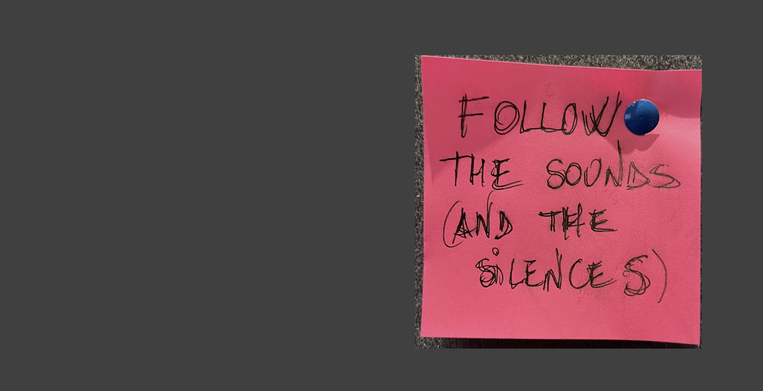
The Workshop
The three part workshop engaged with sonic memory, recorded sound, and ethnographic listening. These afforded an exploration of sound as remembered, heard with and through audio technologies, and significant in orienting people toward one another and a more-than-human world. Listening prompts were developed collaboratively, from Joella and Marina’s respective experience leading public listening workshops and teaching classes on topics related to sound in anthropology. The prompts treated sound expansively while emphasizing methodological tools that might be deployed in a variety of settings. Intrinsically reflexive, the prompts invited participants to focus on listening as a way of treating sound as emergent, processual, and relational.

As people arrived and got settled, we played a recording from Peter Cusack’s Sounds from Dangerous Places to begin to orient people toward environmental sounds from an unfamiliar place that might evoke associations. We moved from this directly into an exercise on Remembered Listening, inviting participants to respond to the prompt: “What does home sound like?” Participants wrote for five minutes and then shared their thoughts. Responses ranged from memories of busy cities to the resonances across places experienced during frequent moves. The next prompt experimented with repetitive listening, using the potential of recording technology to play back and repeat. Audio technology is an important tool for engaging with sound as anthropologists; field recordings continue to be a primary medium for anthropologists, but the capacities of recorded sound for constituting relations—with the sound source, with others as they circulate, and with the listener—are less often considered.
For the final portion of the workshop, we sent participants out into the convention center to turn their ethnographic attention toward how other people listen. We envisioned learning about how someone giving a conference paper is listened to by the rest of the people in the room, but instead learned about how relations are made in hallways, birds noisily cohabiting in an outdoor patio, and infrastructural hums and whirrs largely ignored by people. We concluded the workshop by asking participants to write a response to the prompt: “How might/does listening feature in your ethnographic research?” We hung the sticky notes with responses on the wall as part of the exhibit.
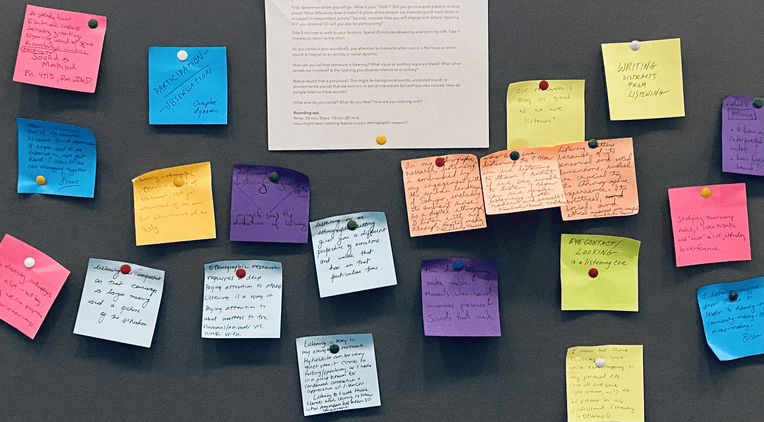
"Toolkit" Zine
We offer the prompts here, in one-page zine form, for you to do these listening exercises on your own or with a group. (PDF linked below.) We invite you to share your experience engaging the prompts. Do they shift your approach to sound or amplify processes you are already following? Are they something you might use or draw from for future use, either in research or the classroom? As scores circulating in the world, we hope they will have a life of their own, drawn on partially or in full, edited and developed into something more or different than their current form. Send reports as they bend and morph, supporting diverse ways of listening. Our email is below.
Here are some folding instructions to go with the zine.
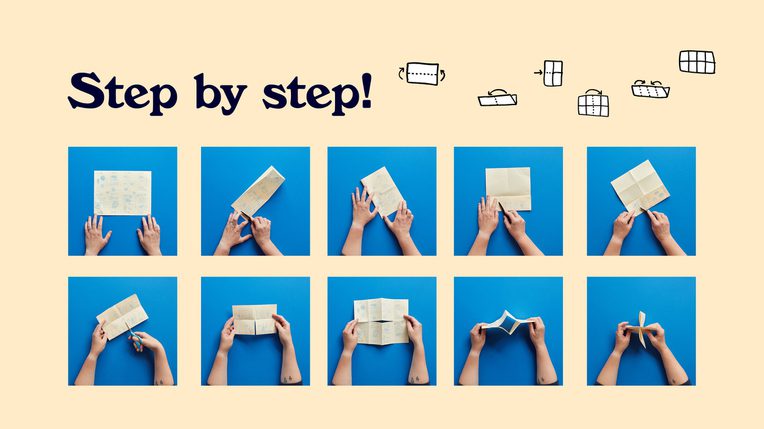
Add your Reflections
If you'd like, email us with your experiences at digitalcuratorialcollective@gmail.com.
